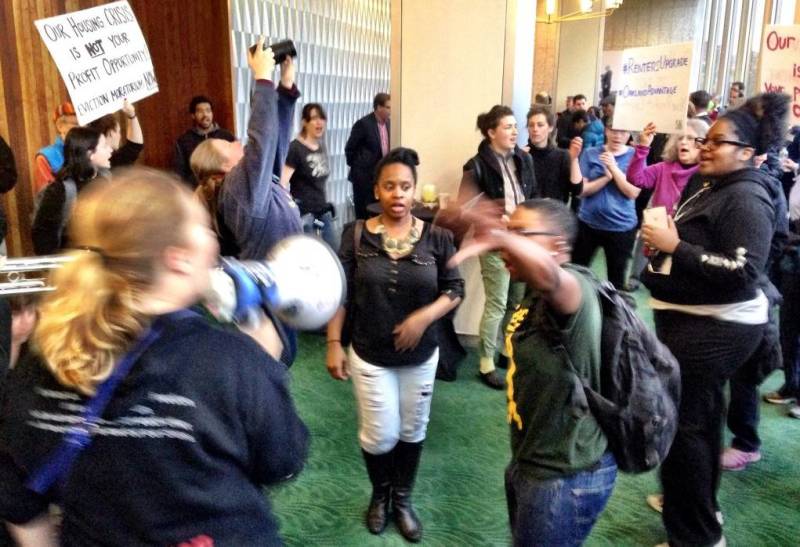A group of about 60 protesters demanding solutions to Oakland's housing affordability crisis shut down an annual Chamber of Commerce business summit early Friday.
The protesters, drawn from several community groups and banded together as the Oakland Alliance, disrupted the beginning of the meeting in the Kaiser Center's second-floor conference room.
The opening of the summit was broken up by chants of "Housing is a right! Housing is a right!" and "Once I pay my rent, all my pay is spent!"
One of the protest organizers, Carol Fife, told KQED's Tara Siler that the action was meant in part to put city leaders on notice they need to take gentrification and displacement as seriously as trying to attract new business to Oakland.

